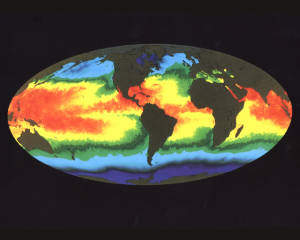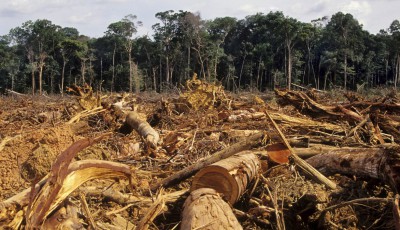Warming raises global economic threats
 By Tim Radford
By Tim Radford
LONDON, 17 June, 2016 – Climate change is likely to affect the global economy − and it may already have begun to affect raw material supplies from tropical regions, according to new research.
That is because, in a global economy, the flow of wealth depends on a secure supply chain, and productivity that depends on outdoor work in the tropics could become more precarious in a warming world.
Even in a temperate zone country such as Australia, researchers have linked heat extremes with economic losses. And climate-related disasters are on the increase, claiming not just lives but a growing economic toll.
Research has also indicated that, without drastic action, some regions may reach temperatures that could make them uninhabitable.
Heat exhaustion
But there is already evidence that at temperatures around or above 25°C, labour productivity declines. At significantly higher temperatures, heat exhaustion becomes a hazard. And if output falls at a source of materials, then workers far away who depend on those supplies will also see their productivity falter.
Two German scientists report in Science Advances journal that they tracked economic traffic from 26 industry sectors – including mining, quarrying, textiles, forestry and agriculture – all the way to final demand in 186 countries.
They matched temperature, population and global economic connections from 1991-2011, and then fed into their computer simulations the known consequences of heat stress on workers. Their finding was that interdependence had increased, and with this interdependence had come vulnerability.
“The structure of our economic system has changed
in a way that production losses in one place can
more easily cause further losses elsewhere”
The implication is that what might be bad news for workers in one region subjected to extremes of heat would ripple through the global market.
“Our study shows that, since the beginning of the 21st century, the structure of our economic system has changed in a way that production losses in one place can more easily cause further losses elsewhere,” says Leonie Wenz, a physics PhD student at the Potsdam Institute for Climate Impact Research (PIK). “What is self-evident for us today is really a phenomenon of the last two decades.”
Worldwide repercussions
Single events – such as Typhoon Haiyan in the Philippines, which destroyed half the world’s production of coconut oil, a vegetable fat used in food production worldwide, and the 2011 Queensland flood in Australia that halted production at one of the world’s largest coal sites for weeks – have repercussions worldwide.
But smaller perturbations linked to heat stress for workers also impose costs far from the locale where the temperatures have soared.
“With unabated climate change, the rise in global mean temperature will have severe impacts on natural and societal systems,” says Anders Levermann, head of global adaptation strategies at PIK and adjunct senior research scientist Columbia University’s Lamont-Doherty Earth Observatory in the US.
“To estimate the costs of future climate change, we need to assess global economic impacts of more frequent heat extremes and meteorological impacts, such as floods and storms, and understand their relation to the economic network’s structure.
“In a warming world with more intense weather extremes, it is likely that society needs to become more resilient and more flexible.” – Climate News Network







